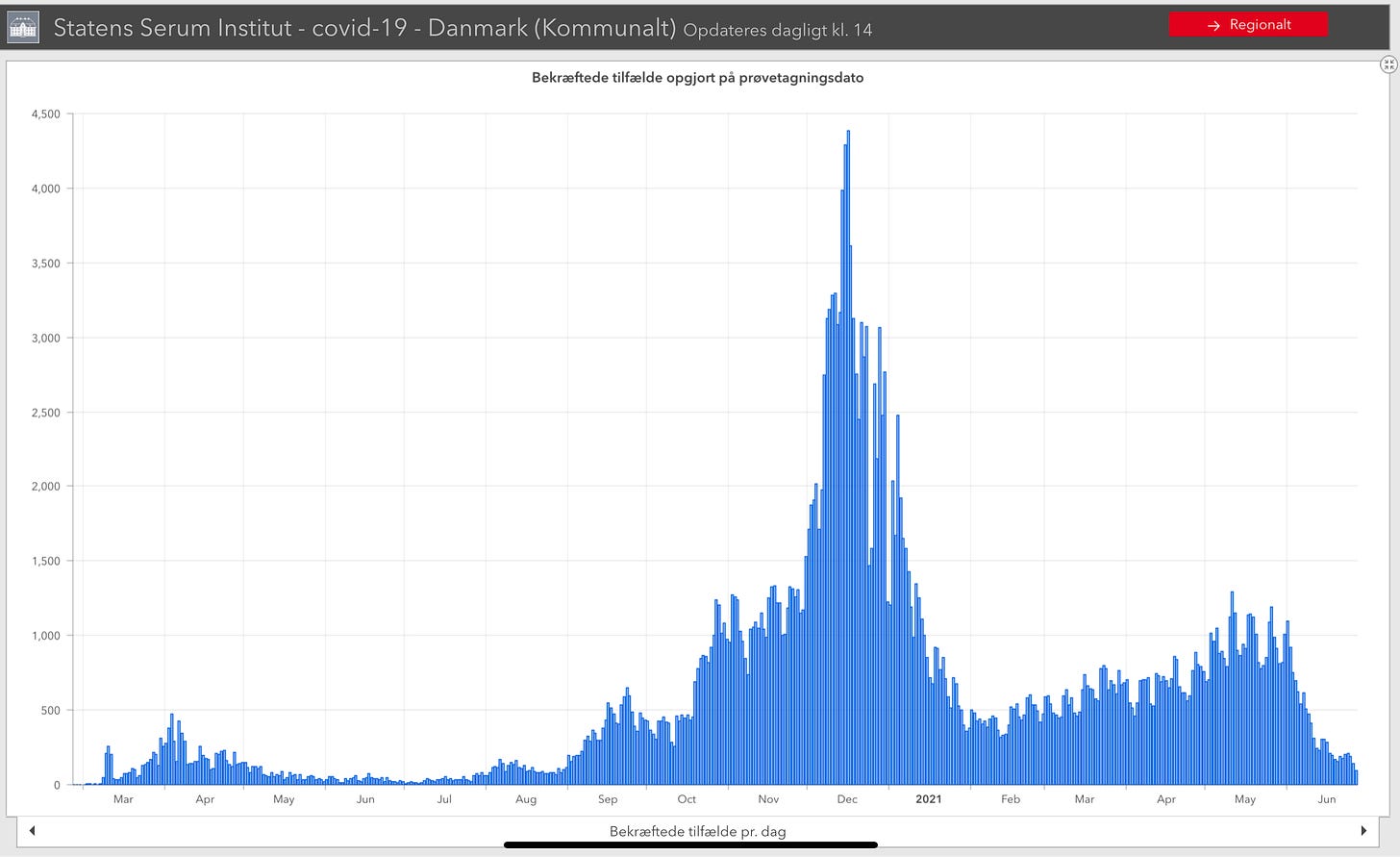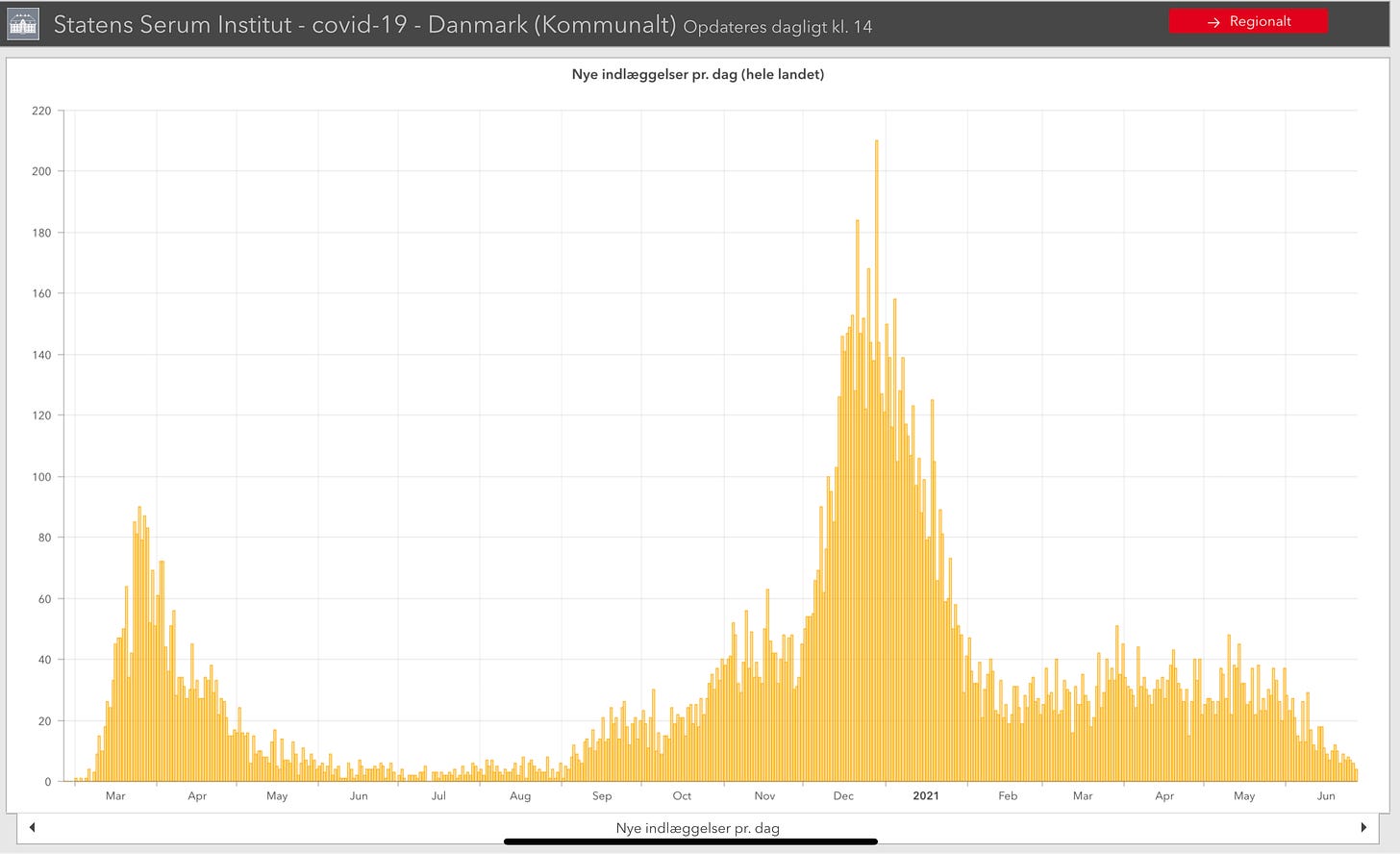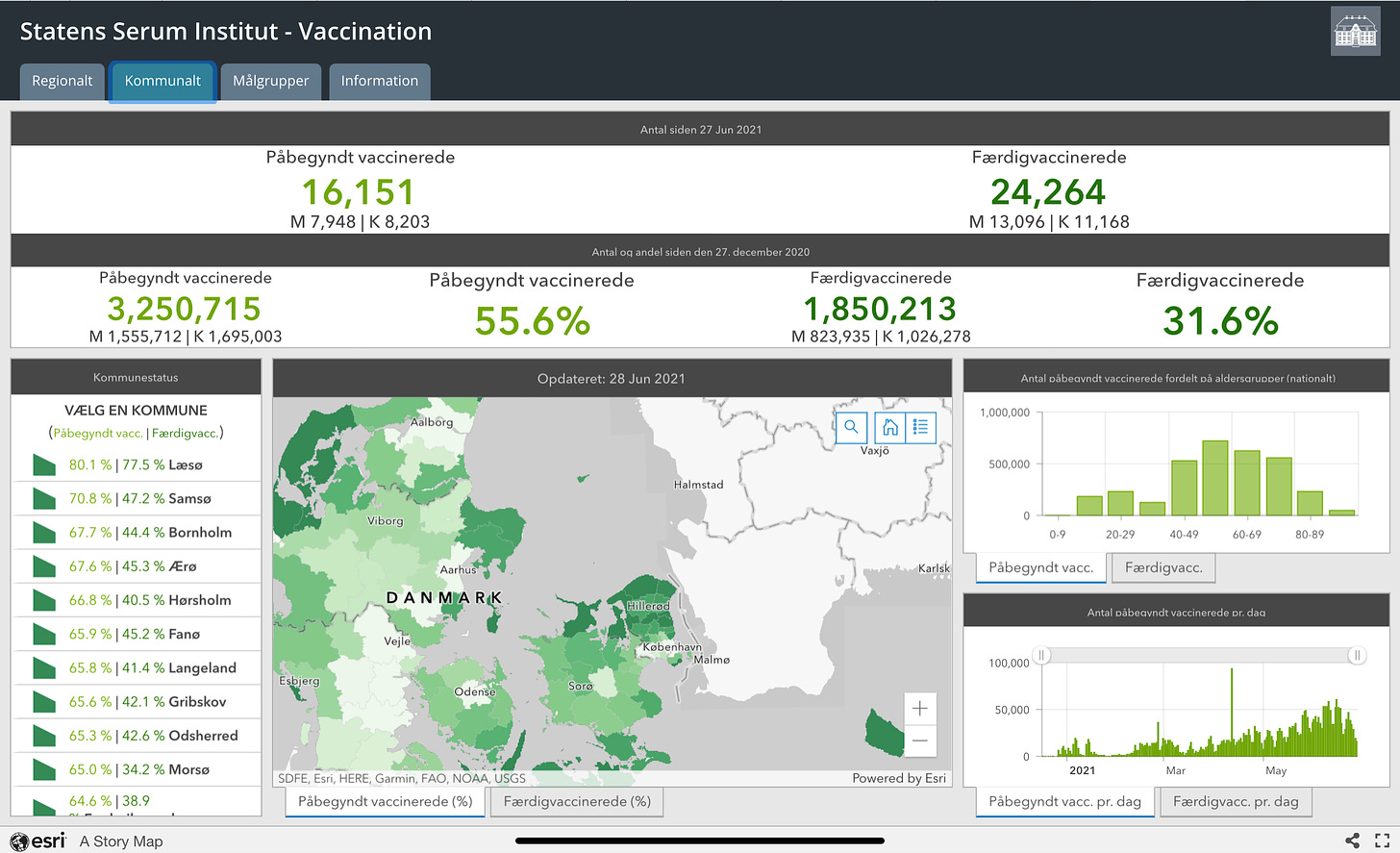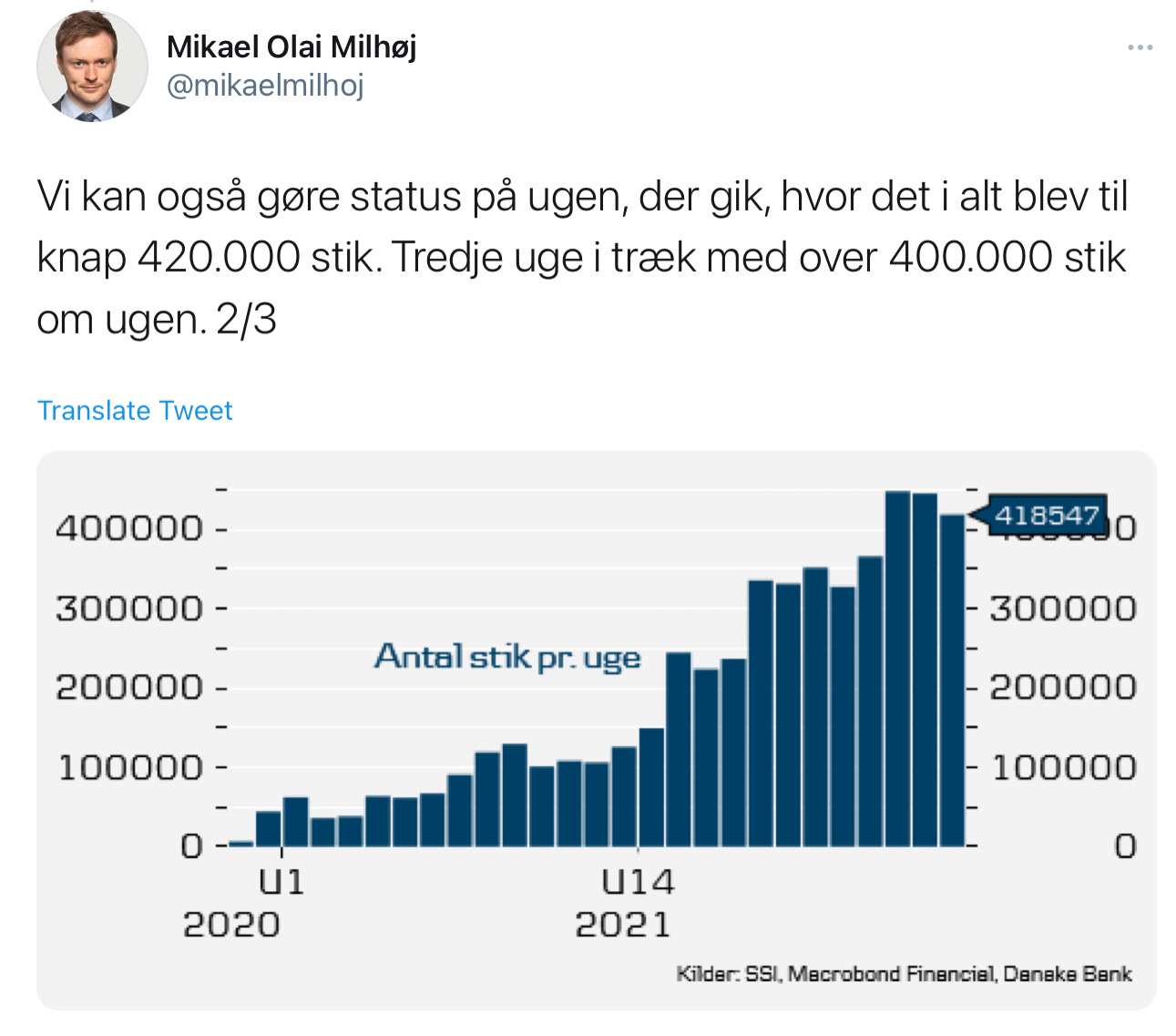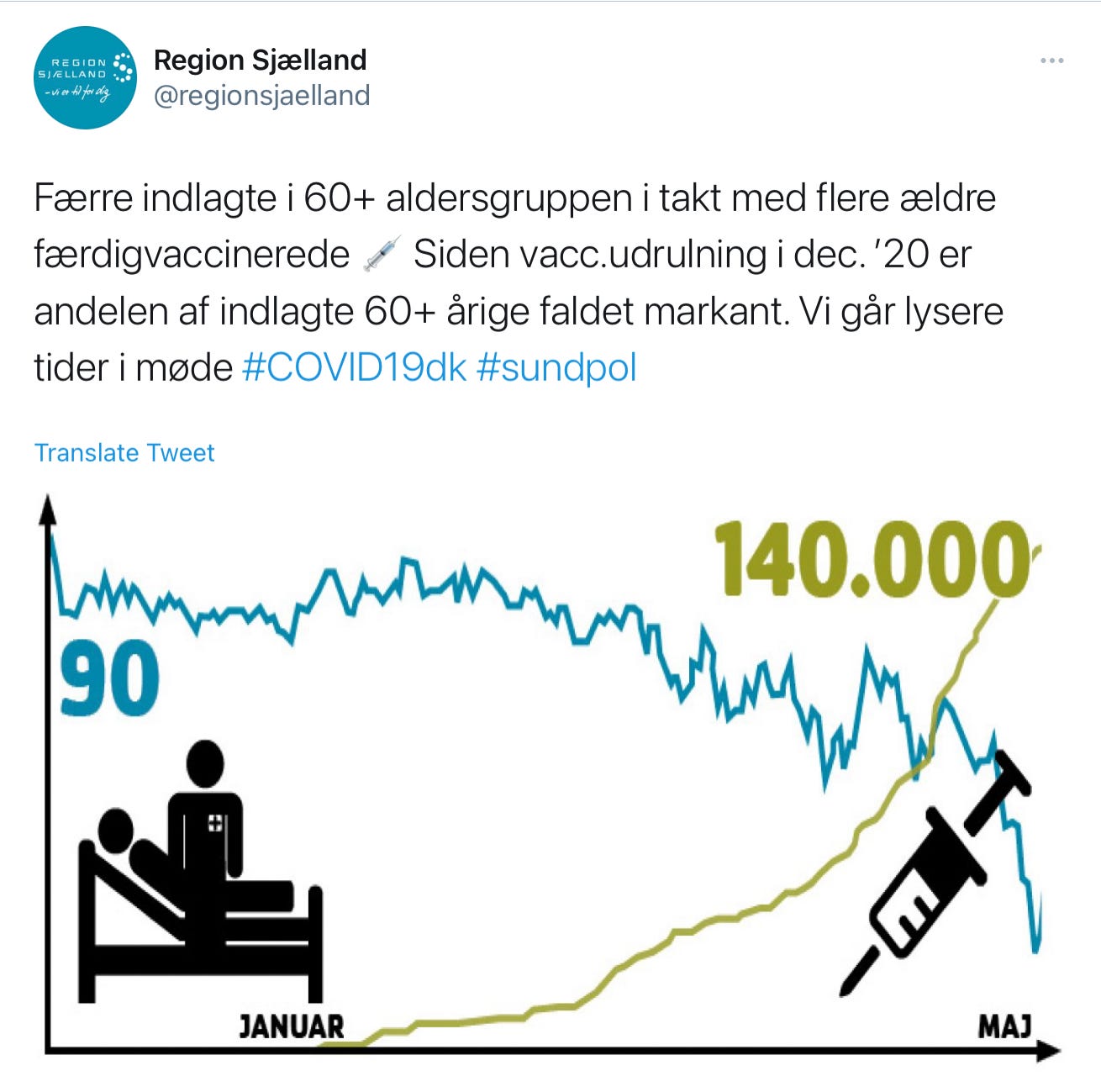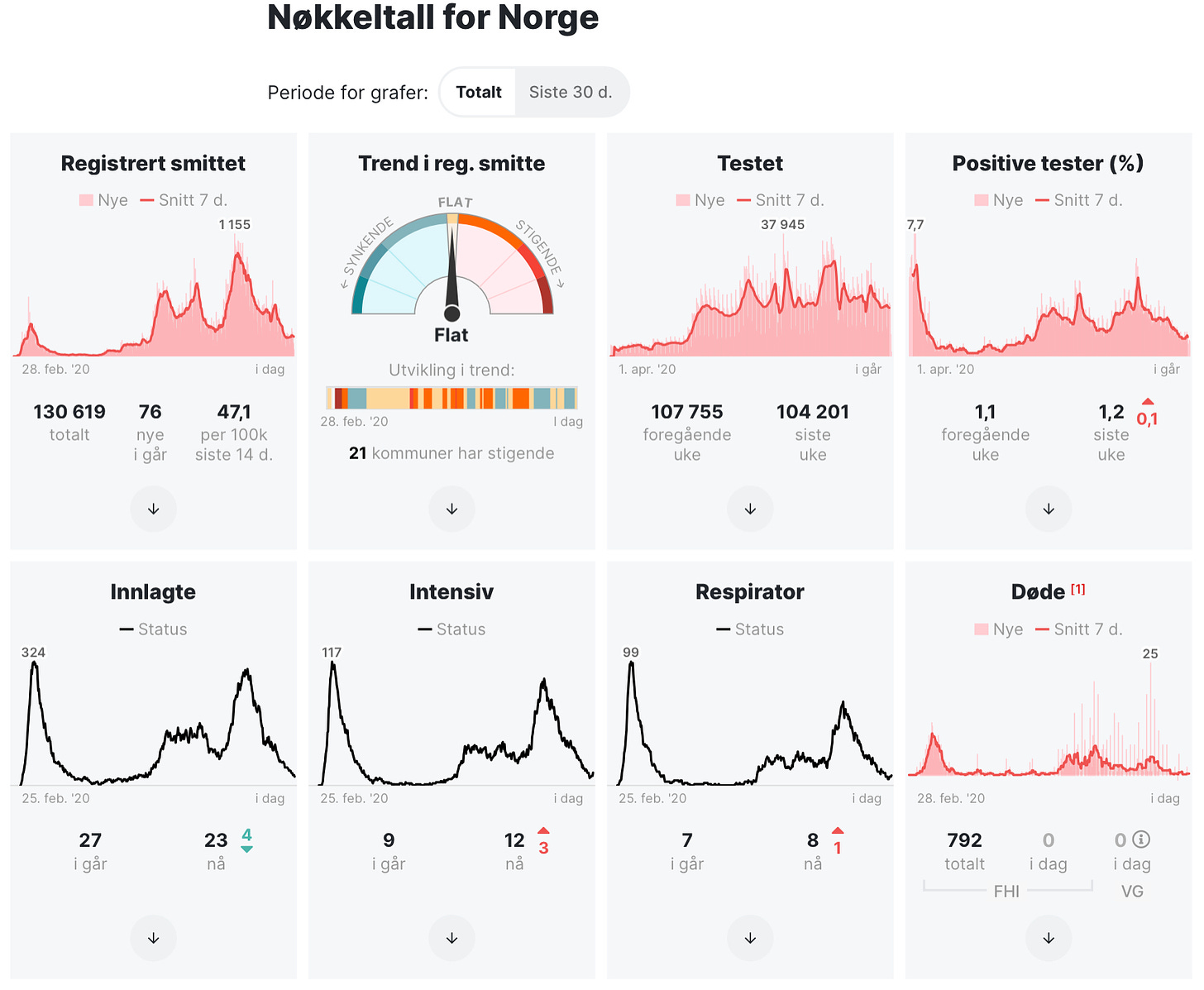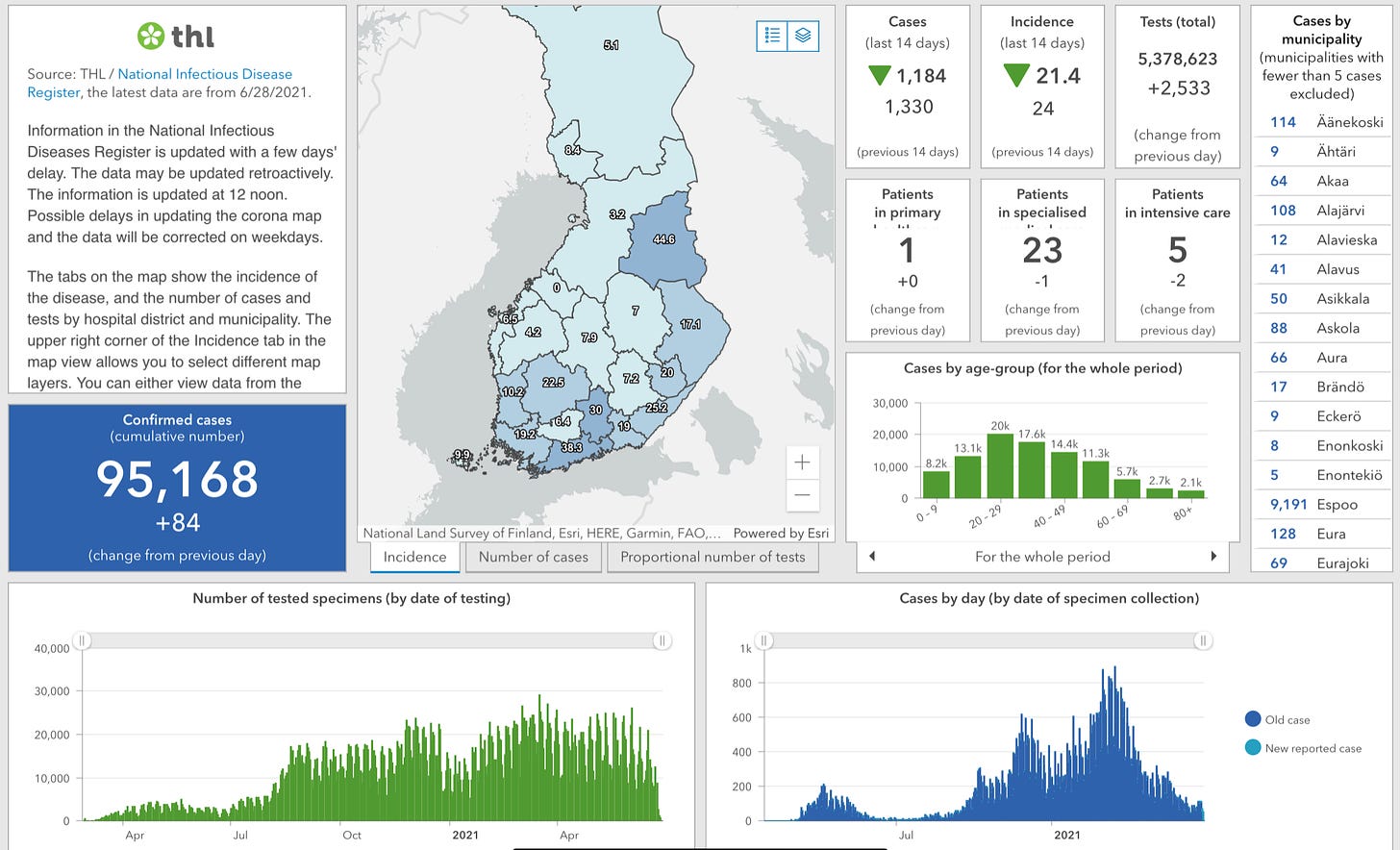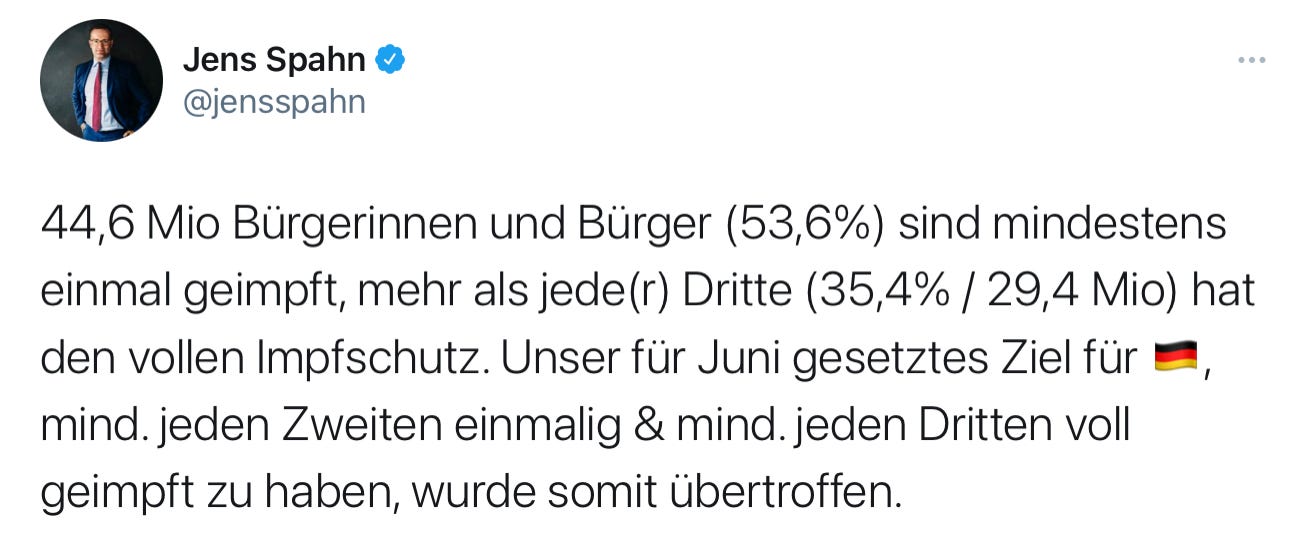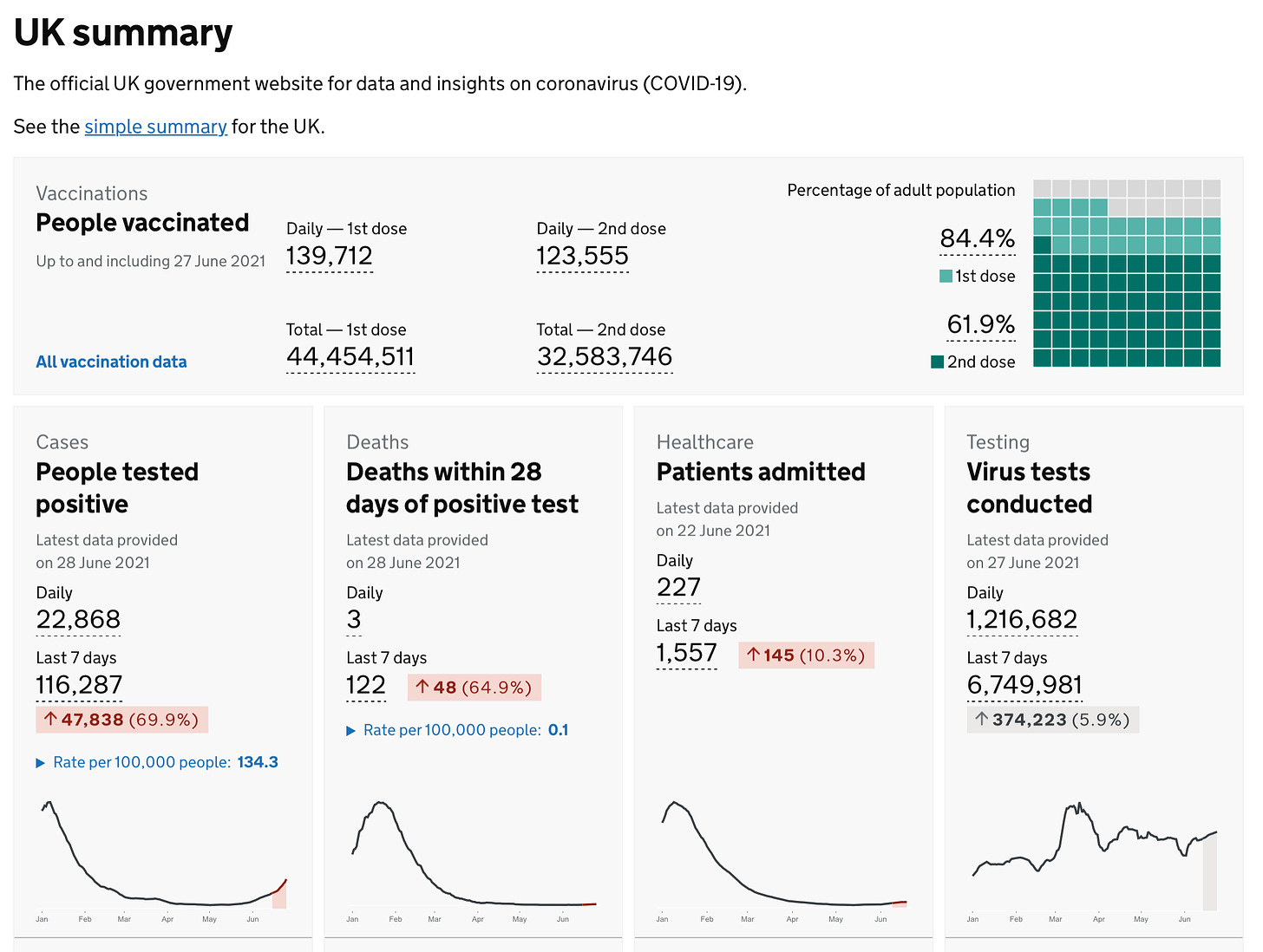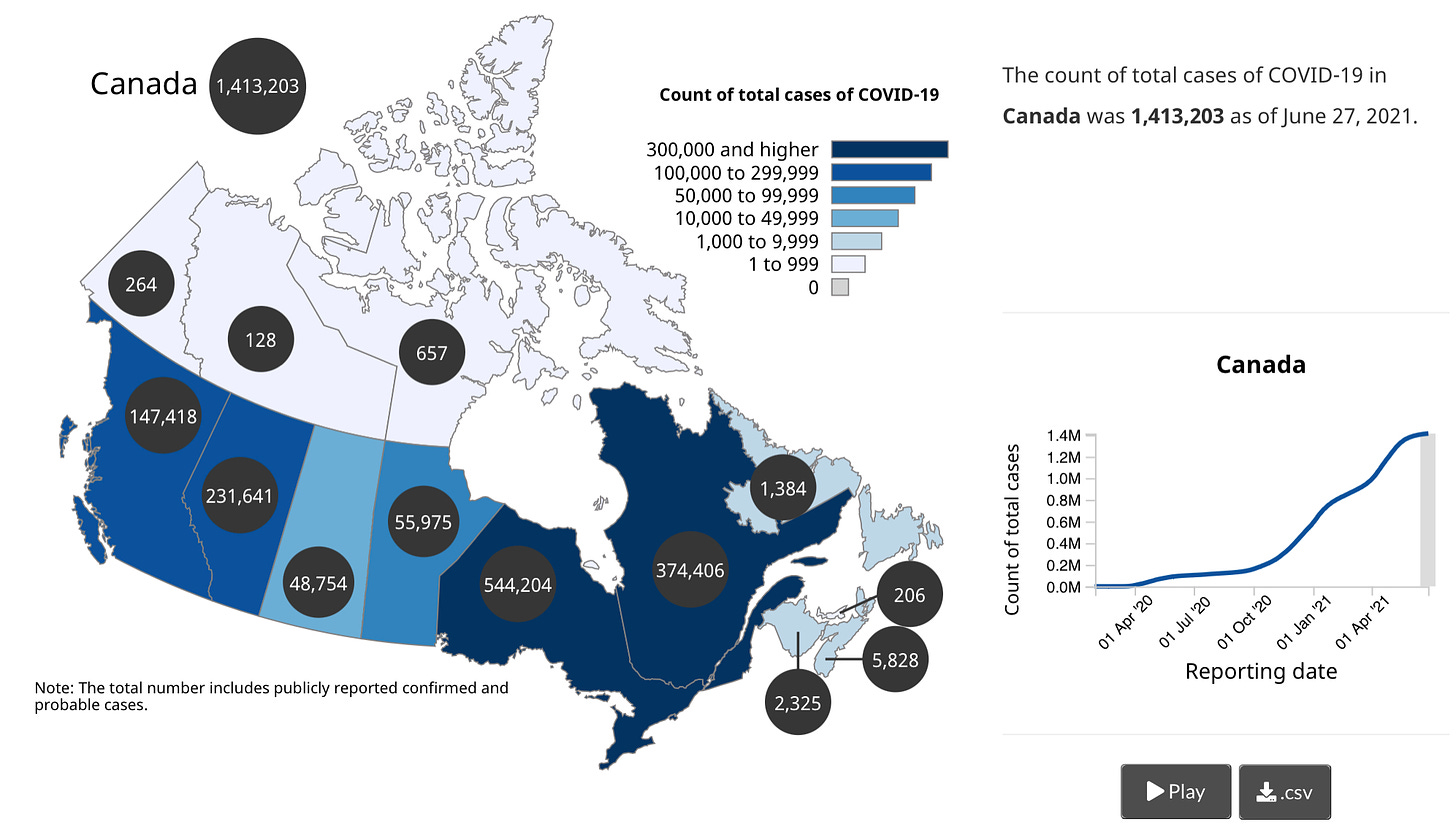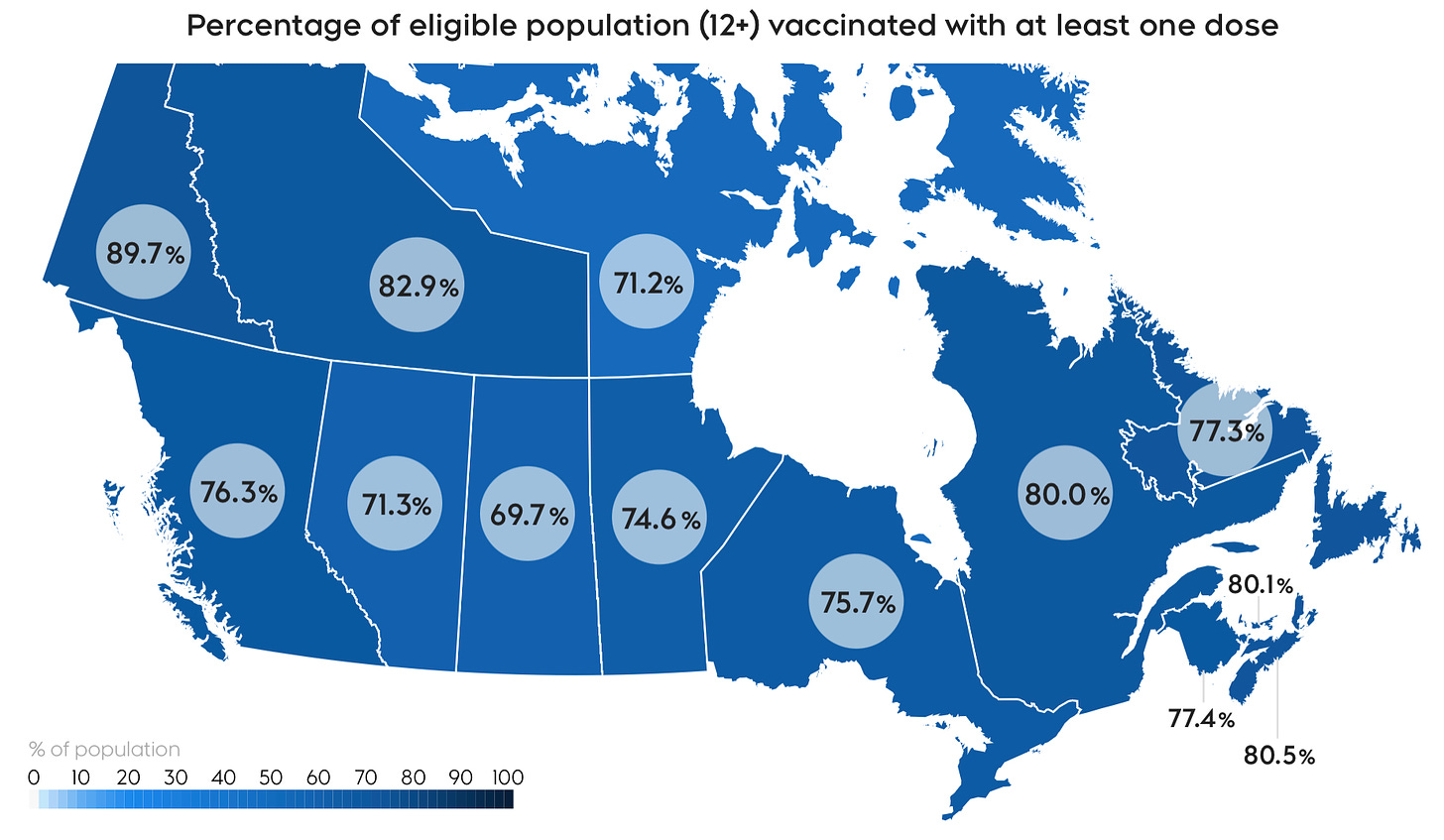🇫🇮
The Helsinki and Uusimaa hospital district (HUS) said today that the number of COVID infections from people returning from St. Petersburg, in the capital region, have grown to 202. HUS says 496 people are currently in quarantine.
Health authorities in Finland are urging everyone who was in St. Petersburg last week for the Finland versus Belgium European Championship game, as well as their close contacts to get tested ASAP. Over the weekend, the Finnish Health Institute warned anyone who was on a bus trip back and forth to St. Petersburg may have been exposed.
The coronavirus infections from Russia are a huge concern in Finland, with the country’s health institute saying they account for half of all new cases since Tuesday.
HUS chief medical officer Markku Mäkijärvi:
"The situation is extremely worrying and requires accountability. If someone got a negative result from tests taken in Russia or at the border, it does not necessarily mean there the person is not infected. There could be many times more people who were exposed, even thousands.”
According to a reporting from Finnish news agency YLE, passenger lists on the buses were incomplete, with passenger information missing, including crucial information like names, addresses, and telephone numbers.
🇩🇰
The Staten Serum Institut has published a peer-reviewed study of the Cluster 5 mink COVID variant that jumped from mink to people in Denmark. The study concludes that mutations in the strain “led to a certain significantly increased degree of antibody resistance in some individuals after COVID infection.” The agency says this confirms preliminary findings reached in the fall of 2020 that fueled so much concern about the Cluster 5 variant.
The study also emphasizes a concerning risk of continued mutations through Denmark’s farmed mink population. The study urges that herds of farm animals be followed closely, using coronavirus testing and sequencing to prevent unchecked COVID mutations developing through farmed animal populations and jumping to humans.
The study was published in the scientific journal Frontiers of Microbiology and can be found HERE.
Concerns around the Cluster 5 variant prompted the Danish government to order the culling of virtually all farmed mink in Denmark. An order later found to be illegal. That has led to a political controversy, an ongoing review of the government’s actions, and billions of kroner paid out to mink farmers across the country. There is also still the matter of recovering improperly buried mink remains and disposing of them.
-
Region Syddanmark is looking to scale down COVID testing across the region while at the same time making sure capacity is there for summer tourists. It says testing capacity will become a little more fluid targeted at areas where the crowds are, while reducing testing sites and tightening up operating hours.
Executive Vice President Kurt Espersen:
“We are generally experiencing a decrease in the need for testing, because citizens can now use their coronapas especially now with one dose. As in the rest of the country, we have seen a marked decline in the need for test capacity. This means that we will continuously adjust the test capacity in collaboration with the municipalities and follow the national authorities' announcements in this area.”
He adds they are taking a hard look at operating hours at each site.
“As it looks right now, it is especially quiet outside at the test sites in the evening hours. Therefore, several places will close a little earlier in the adaptation we have planned right now.”
Mobile COVID testing sites will now focus on areas where there will be more tourists. The health region will post updated testing hours and locations every Friday.
-
Denmark is reporting 151 COVID infections and one more coronavirus death in the last day.
Yesterday, there were 242,026 total corona tests done, 60,586 PCR and 181,440 rapid, as demand continues to fall.
The (PCR only) positivity percentage is 0.25%.
COVID hospitalizations (65) edged downward (-1) of those, the number of infected in an ICU (14) also declined (-3) and of those, the number on a ventilator (11) inched up (+1).
On the vaccination front, there have been 3,250,715 1st-dose vaccinations (55.6% of the population) administered while 1,850,213 people (31.6%) are fully vaccinated.
Yesterday, there were 40,415 total vaccinations done.
Danske Bank Chief Analyst Mikael Olai Milhøj noted today that in each of the last three weeks there have been over 400,000 total vaccinations done. He says total vaccinations last week totaled 420,000.
-
The vaccination campaign impact continues to be reflected in new infections over the last week, as COVID cases have almost vanished for those over 60 years of age. New infections among people aged 50 and older are also dropping like a rock.
-
Region Midtjylland says Moderna has come to the rescue as it faced a reduction of Pfizer vaccine doses in the weeks ahead. The health authority says it received 116,000 total vaccine doses this week. All but 6,000 were from Pfizer/BioNTech. The region says it will now have to portion out Pfizer doses to ensure everyone who has had a first dose can get a second. So only 72,600 of the 110,000 Pfizer doses are in play this week.
The health region says while Pfizer deliveries diminish, Moderna has come through with more than expected doses. It expects 33,000 more Moderna doses than expected per week, beginning in week 28 and on. These will go to first doses to keep the vaccine invitations rolling.
Region Midtjylland says all 16-year-olds born in 2005 are now invited to make a vaccination appointment. That said, it notes fewer young people than expected are showing up to get inoculated. It is urging parents to help their kids make a vaccination appointment. Also newly invited this week are people aged 25 to 29 and 35 to 39 years old, born in 1982 and 1996.
To date, 388,200 people (29.1%) in mid-Jutland have had both doses, while 702,500 people (52.6%) have begun the vaccination process with one dose.
-
Region Sjælland says the number of COVID patients over the age of 60 “has dropped significantly” since vaccinations began in December. The health region adds “we are facing brighter times.”
Region Sjælland staff were on the islands of Sejerø, Femø, and Fejø today to administer second-dose vaccinations. This means all residents of the three islands over the age of 16 will be fully vaccinated. The health authority decided early it would be more efficient to vaccinate all island residents at once, instead of hopping back and forth every time a new age group was called.
🇸🇪
The Swedish Public Health Agency is cautiously recommending a slight easing of COVID restrictions. The health agency says infections are declining while vaccinations continue to increase. This is allowing it to recommend an easing of restrictions for July 1.
The Folkhälsomyndigheten says people can now carefully step outside their social bubble but, in doing so, must take all precautions. It recommends only meeting new people outside and with social distancing. At all costs, it advises not to gather indoors in close proximity. Its recommendation that shopping be restricted to one person, from any family or group, is abolished. Constraints on sports and cultural associations are also removed with a reminder to avoid large gatherings and ensure social distancing.
Director General Johan Carlson:
“We urge everyone to be seen outdoors as much as possible and to avoid crowds and larger parties. Everyone should continue to keep their distance in public environments.”
Restrictions in opening hours for restaurants also disappears as does caps on numbers and groups in outdoor cafes. Indoor dining is increased slightly to groups of eight, with tables required to be spaced apart.
The cap on private parties in a rented facility is increased to 50. More people will also be able to participate in public events and gatherings. The rules will depend on whether the event is indoor or out, designated seating or not, or if seating is in divided sections.
🇳🇴
Norway has added 458 infections and had no new corona deaths since Friday’s update.
COVID hospitalizations (23) are down (-4) ICU numbers (12) are up (+3) ventilator numbers (8) edged up (+1).
To date 45.71% of Norwegians have had one dose while 28.61% have had both.
-
The city of Oslo and Norway’s National Institute of Public Health conducted a joint study to try and find which activities had a higher risk of coronavirus infection to better target restrictions. The study found most people were infected in their own household. The larger the household the higher the risk. It also found younger people also had a higher infection risk.
The surprise was that it found eating in at a restaurant increased the risk of COVID infection by 200%. While drinking at parties increased the risk of infection by 70% compared to avoiding alcohol and social gatherings.
NIPH Dr. Pawel Stefanoff:
“When we take a closer look at the two most important risk factors in the study, participation in private parties and restaurant visits, the risk itself did not increase by participating. It is the combination of partying and alcohol intake as well as visiting restaurants where you sit down at the table that gives increased risk.”
The other findings of the study confirmed basic restrictions and hygiene practices like wearing a mask, washing your hands, and working from home also worked really well to reduce infection risk.
“Spending a lot of time outdoors, with others, did not increase the risk of infection in itself. It is the combination of social behavior and inadequate compliance with infection control councils that leads to an increased risk of infection, which the results of this study support.”
🇫🇮
Finland has registered 84 new infections in the last 24 hours. It only updates fatality and hospitalization statistics once a week on Wednesdays.
On the vaccination front to date, 3,220,572 1st dose vaccinations (57.7% of the population) have been administered while 980,821 people (17.6%) now have both doses.
-
The first results of a study from four Finnish universities and Finland’s Institute for Health has given high marks to the Pfizer/BioNTech vaccine. The study found that two doses of the vaccine gave very high protection against the Alpha variant (B.1.1.7) but had slightly reduced efficacy, but still overall very good protection against the Beta variant from South Africa.
The study will continue to test the Pfizer vaccine against other variants of concern, including the Delta variant. It will then continue to test the efficacy of other vaccines as well.
The study involved 180 healthcare workers who were fully vaccinated. The study was published by Nature and can be found HERE.
🇩🇪
German Health Minister Jens Spahn says the vaccination campaign exceeded his goals for June. He had hoped to see vaccinations cover half the population for first doses done and get one in every three people in Germany fully vaccinated. To date, 44.6 million people in Germany (53.6%) now have at least one dose, while 29.4 million (34.4%) have had both doses.
🇬🇧
The United Kingdom continues to struggle with the Delta variant as its infection curve heads back upward. Today, the UK reported its highest number of infections since the end of January, with 22,868. This is the highest daily number of new infections, and the first time the country has cracked the 20,000 mark since January 30.
New infections, fatalities, and hospitalizations all continue to increase over the last seven days in one of the world’s most vaccinated countries.
💉
A study by Washington University has found that mRNA vaccine could provide long-lasting protection against the coronavirus theoretically maybe over an entire lifetime. The study published in Nature, did a painstaking study of immune reaction among vaccinated individuals. Researchers found for the first time that some cells in vaccinated people are evolving just as the virus is and providing ongoing protection against the virus. The study found immune reaction from mRNA vaccines remained high for months after a second dose. Typical vaccine immune activity diminishes after a few weeks. Researchers say this could mean booster shots may not be needed and if they are, it would really boost existing immunity levels.
The one fly in the ointment is evolving variants. If one reaches a point where it learns to sidestep antibody response, then all bets are off. Also, the immune response is lessened among people with weaker immune systems or who have to take drugs suppressing immunity. They may need booster shots in the years ahead.
🇨🇦
Canada reported 436 new infections while suffering another 13 coronavirus deaths yesterday. Those numbers will change today when B.C, Alberta, and Quebec all report for the first time since Friday.
So far the Canadian vaccination campaign has inoculated 25,508,979 people (67% of the total population) with one vaccine dose while 9,771,397 people (25.66%) are now fully vaccinated.
In Ontario today there were 210 new infections, the lowest daily total since September 13, while adding three more deaths.
Quebec reported 254 new infections and no new virus deaths since Friday. The province further eased restrictions today.
In Atlantic Canada, Nova Scotia registered four new infections. New Brunswick and Newfoundland and Labrador each had one.
Manitoba recorded 97 new infections while also suffering the loss of a young girl under the age of 10 in the Winnipeg area who died after contracting COVID. The province has now had 1,139 total virus fatalities to date.
There were 48 infections and no new deaths in Saskatchewan yesterday.
Alberta didn’t report any new coronavirus numbers over the weekend due to some kind of technical issue. Provincial authorities are expected to update the situation today.
B.C. doesn’t report on weekends and will table three days worth of COVID numbers later today.




